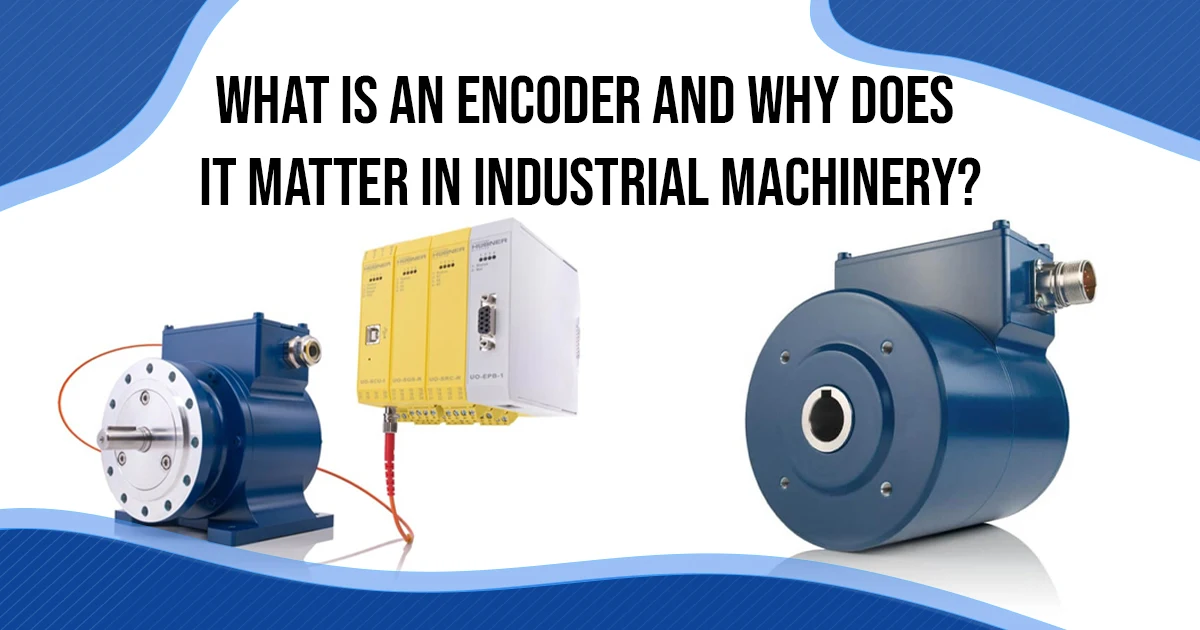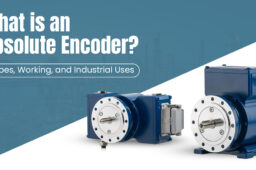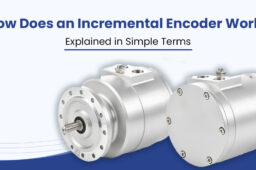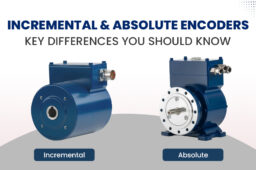
What is an Encoder and Why Does It Matter in Industrial Machinery?
- September 27, 2025
- by
- bhavik@bcreative.in
Accuracy is one of the very first things that comes to mind when we talk about modern machines. This is because even a small mistake can stop the production line or damage expensive equipment. To avoid this, industries use encoders. An encoder is a very important part that plays a big role in running motors, cranes, robots, and other machines safely. Without this device, many industries cannot achieve speed, precision, and safety.
What is an Encoder?
An encoder is a sensor that measures the position, speed, and direction of a moving part and converts this information into an electrical signal that can be used by a control system. Think of it as the ‘eyes’ of a machine, constantly providing real-time feedback so that the system can make accurate adjustments. This ensures smooth operation and minimizes errors. Encoders are widely used in applications like motors, elevators, robotics, conveyor belts, and wind turbines. There are two main types of encoders: incremental (measuring relative movement) and absolute (providing a specific position value).
Types of Encoders in Industrial Machinery
While all encoders perform the same basic function, different types are designed for specific applications. Understanding the differences between them can help you choose the right one for your machinery.
Incremental Encoders
Incremental encoders generate a series of electrical pulses as a shaft rotates, allowing control systems to calculate speed, direction, and relative position. These encoders are especially valued for their simplicity, cost-effectiveness, and high reliability in rugged applications.
Designed for use in harsh industrial conditions, incremental encoders are ideal for safety-critical operations in heavy industries, including steel and rolling mills, even in wet environments or exposure to sea air. They are commonly deployed to measure the speed of standard, auxiliary, and secondary drives in demanding sectors such as mining, port handling, crane systems, as well as the oil and gas and petrochemical industries.
Also Read: How Does an Incremental Encoder Work? Explained in Simple Terms
Magnetic Encoders
Magnetic encoders use magnetic fields instead of optical components to measure position and speed. This design allows them to operate reliably in harsh environments with dust, dirt, oil, or vibrations. Because of their durability, they are widely used in industries such as steel, mining, and heavy machinery, where tough working conditions are common.
Absolute Encoders
Unlike incremental encoders, absolute encoders provide a unique position value for each point of rotation. These encoders “remember” the exact position even after a power loss, making them ideal for critical applications like robotics, elevators, and cranes, where precision and recovery after power failure are paramount.
Universal Encoder Systems
Universal encoder systems combine multiple features, offering versatility across various applications. These encoders can handle a wide range of industrial environments, making them an ideal solution when businesses need a flexible system that works across different machines.
Why Encoders Matter in Industrial Machinery
When you look at your machines, you may think they run on their own. But without encoders, they cannot work in the right way. An encoder is what guides every move. They are used across a wide range of applications to measure the speed of standard, auxiliary, and secondary drives in steel and rolling mills, mining operations, ports, and crane systems
If you remove the encoder, the machine is blind. You will see more downtime, mistakes in work, and even safety problems. That is why encoders are not optional — they are the part that gives you control.
How to Choose the Right Encoder for Your Machinery
Encoders are important because they bring real benefits to machines and industries:
Accuracy and repeatability: The same task can be performed again and again without error.
Safety and reliability: The movement is monitored, so the risks of accidents are reduced.
Reduced downtime: By providing correct feedback, encoders help identify issues early and cut down repair time.
Cost saving: Less downtime and fewer errors mean reduced maintenance costs.
Also Read: Incremental & Absolute Encoders: Key Differences You Should Know
Conclusion: Get the Right Encoder for Your Industrial Needs
Choosing the right encoder can significantly improve the performance, safety, and longevity of your machinery. At Emco Precima Engineering, we offer a wide range of high-performance encoders designed to meet the unique needs of various industries. Whether you need an incremental, absolute, or magnetic encoder, our experts can help you select the best solution for your specific requirements.
Ready to upgrade your industrial systems? Contact us today to learn more about how our encoders can improve your operations, reduce downtime, and enhance safety. If you’re unsure about the right encoder for your machinery, our team is here to assist you!









